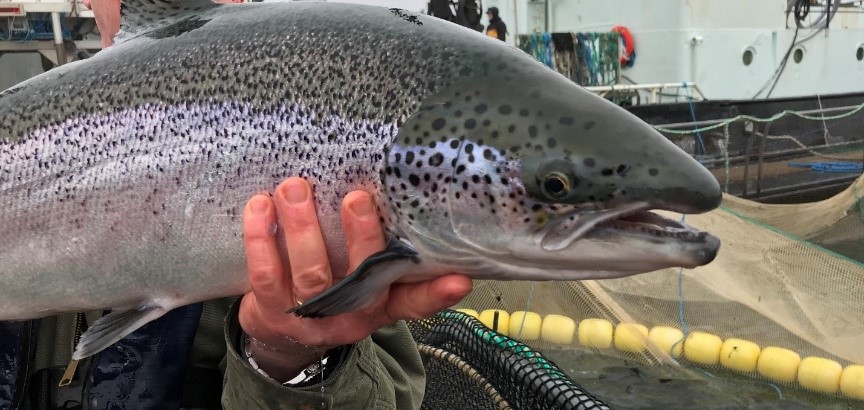The permit updates follow the 2017 collapse of a net pen containing Atlantic salmon near Cypress Island in Skagit County. The collapse allowed more than 250,000 non-native fish to escape into Puget Sound. In 2018, Washington’s Legislature passed a new law to phase out non-native species in marine fish farming by 2022.
Ecology’s new permits will strengthen the environmental protections for the remaining net pen operations in Puget Sound.
Cooke Aquaculture, the only company raising Atlantic salmon in Puget Sound, applied to renew its water quality permits for one pen near Hope Island in Skagit Bay and three pens in Rich Passage near Bainbridge Island. Under current law, if Ecology did not update the permits, the facilities could legally continue to operate under their previous, outdated permits through 2022.
Because Atlantic salmon and their food and waste are considered pollutants, Cooke is required to update its National Pollutant Discharge Elimination System (NPDES) permits. NPDES permits protect water quality by restricting pollution and requiring monitoring, best management practices, and reporting.
The updated permits have improved protections and requirements to reduce environmental impacts from net pen operations, including:
- Increasing underwater video monitoring.
- Conducting regular inspections to assess structural integrity of the net pens, and to submit inspection reports certified by a qualified marine engineer to Ecology.
- Requiring improved maintenance of the net pens, and improving the net cleaning and maintenance procedures.
- Requiring the permittee, in coordination with tribes and Washington Department of Fish & Wildlife (WDFW), to develop site-specific response plans if fish escape, and to conduct and participate in preparedness trainings.
- Maintaining contact information to notify area tribes and state agencies if fish escape.


